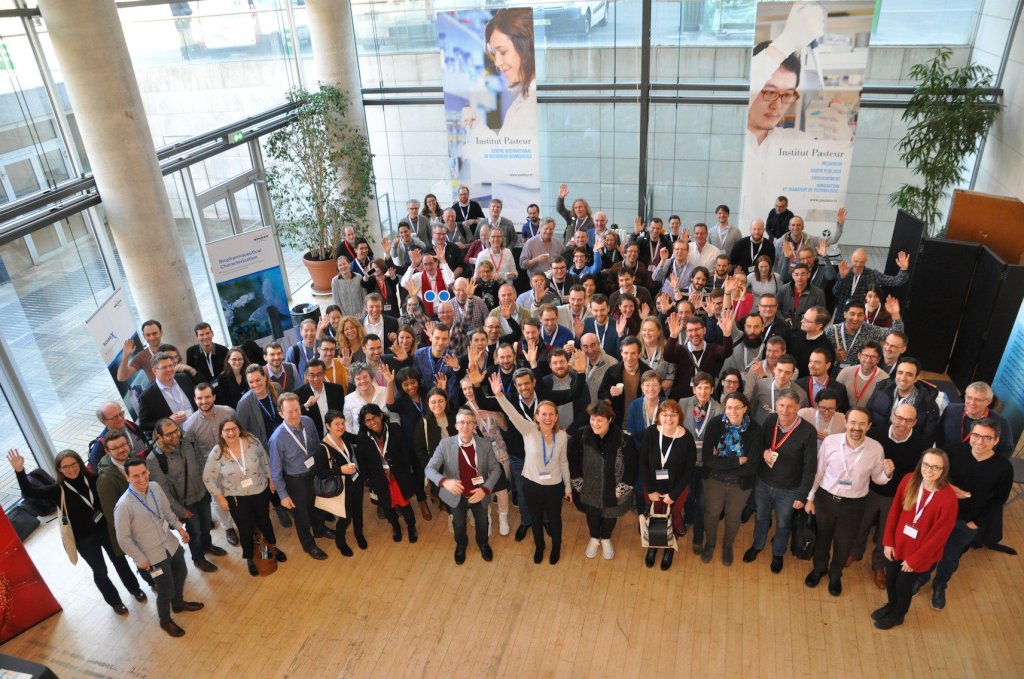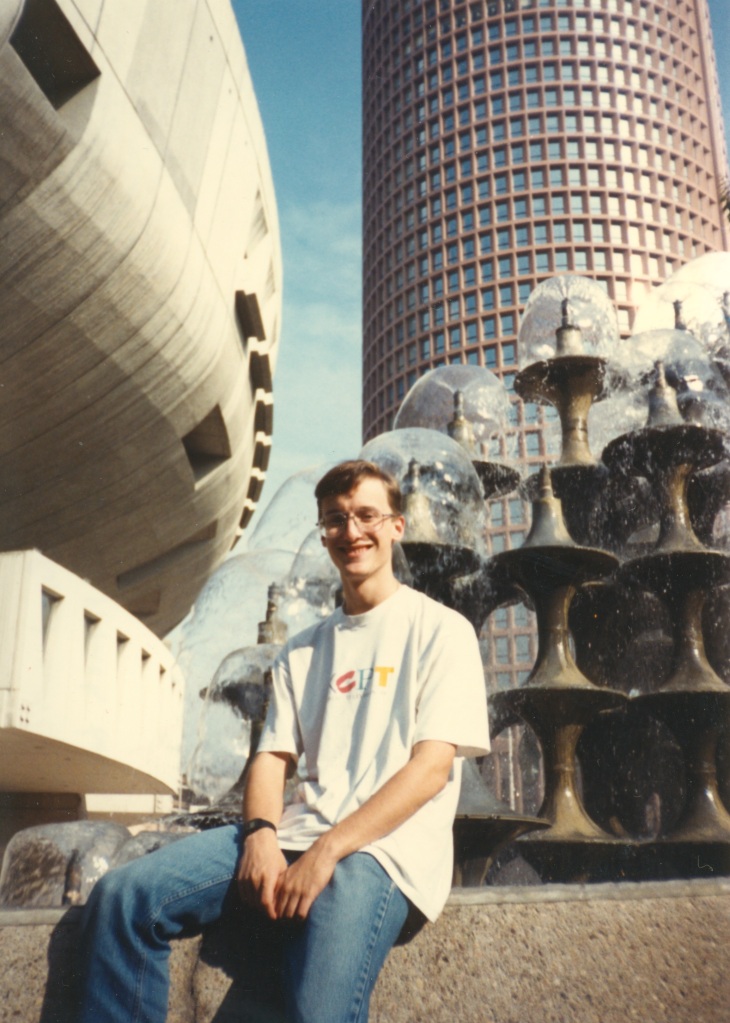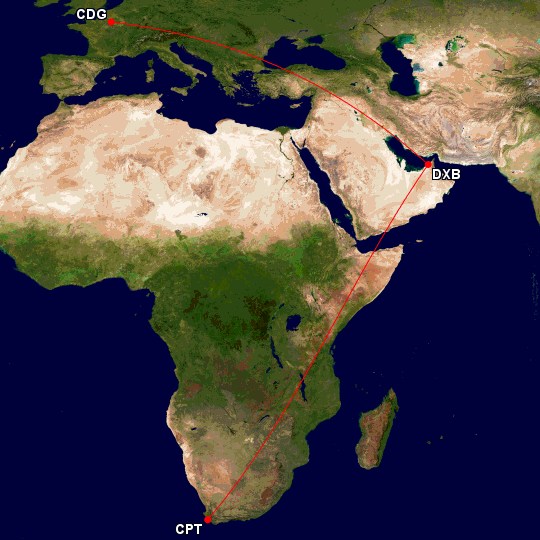On January 4th, 2021, I started my new job. A year ago I would not have guessed that my next position would take me to a new continent and a new language! This post explains how my wife and I decided to move north to Paris, France from our home in the Western Cape of South Africa.
I would start by discussing the “push and pull” of my employment at the close of 2020. As I wrote in my prior post, my five-year contract at Stellenbosch U could not be renewed due to financial constraints at the university and national level. Other universities in South Africa were interested in bringing me aboard, but none of them had a pot of money ready to fund that effort. If I wanted full-time employment in academia, I needed to show some creativity in finding the opportunity.
Thinking outside the box
In mid-2020, I encountered a Twitter post from the Institut Pasteur in Paris, France. The Mass Spectrometry for Biology Unit sought to hire a research engineer in bioinformatics. I found myself hoping that a team planning to build their bioinformatics through a staff hire might also welcome a senior partner who could help introduce the peculiarities of mass spectrometry. I asked my wife if she would consider living in Europe for a bit, and her adventurous spirit rendered an immediate “yes.” I wrote a cover letter to Julia Chamot-Rooke, the head of the MSBio laboratory since 2012, asking whether I might serve as a “visiting scientist” with her team for a period of a year. Happily, she replied quickly that her team was interested.

It took longer to elaborate the “how” once we had established mutual interest. I would have liked to arrange this as a “sabbatical,” suggesting that I was on leave from Stellenbosch University in order to acquire new skills that I could introduce to Stellenbosch U upon my return. With my contract expiring, though, there was no indication that funding would exist to allow my return to SUN in 2022. We next thought that I might be a “visiting scientist,” but it appears that funds to support these academic exchanges are no longer available within Pasteur. In the end, we opted for a “chargé de recherche expert” title, which is essentially to say that I will be a post-doctoral researcher (with eighteen years of experience since my 2003 Ph.D.). My goal was to achieve a salary that would cover the rent (Paris is pricey), and Dr. Chamot-Rooke was able to exceed that goal.
Indulge me for just a moment to ask a question that makes me tense: “am I still a professor?” In 2005, I became an Assistant Professor at an excellent university in Tennessee, and in 2011, I was tenured and promoted to Associate Professor. In 2015, I became a “full” Professor in joining the Faculty of Medicine and Health Sciences at Stellenbosch. In 2021, have I effectively “restarted the clock” to become a post-doc? It would be wrong for me to claim that I am a Professor at l’Institut Pasteur. I suspect I will use the phrase “visiting scientist” regularly, to reflect that this is a short (twelve month) appointment. I believe I can still use the title “Professor,” but that flows through Stellenbosch University, not Pasteur Institute.
To grow is to accept new challenges
We often think of our careers as a steady rise in the titles we achieve. I was a graduate student, then a doctoral candidate, then a post-doctoral fellow, then an assistant professor, etc. I would argue that times like today’s COVID-19 pandemic will look like an asterisk on everybody’s curriculum vitae. All of us are struggling to teach or to learn, and all of us find that words flow from our keyboards more disjointedly than ever before (note my nearly nine-month hiatus in writing new blog posts!). I could “retire” from Stellenbosch and work on a book idea or two; really I long for that kind of rest! Instead, I feel the best way to grow in 2021 is to take on new challenges that will make me a better researcher / healthier person / caring husband / etc. What are the types of growth that I hope to achieve from my time at Pasteur?

- Learn skills for an emerging type of proteomics
Almost all of my first- or last-author publications from the last twenty years have emphasized “shotgun” or “bottom-up” liquid chromatography-tandem mass spectrometry (LC-MS/MS) data from complex mixtures of peptides. Over that period, the field has absorbed many researchers from other areas, and a bottom-up proteomics user can choose from a substantial collection of well-developed software workflows for developing information from their experimental data. “Top-down” proteomics technologies do not make use of proteases to chop proteins into peptides prior to mass spectrometry. These methods have been developing alongside bottom-up methods, but the number and diversity of software tools to handle identification of such spectra and manage the statistical issues of these matches have lagged behind the bottom-up world. I believe that I will be able to make a valuable contribution by crafting a manuscript of technology assessment for top-down proteomics, asking questions such as “if different top-down instruments analyze aliquots of the same sample, how much do the data overlap?” or “If different software tools are used to analyze the same data files, how much do their identifications overlap?” Having written several papers on repeatability, reproducibility, and quality control, I see many opportunities in the top-down space.
- Give back to a country that contributed to my early growth
I was a Sturgis Fellow at the University of Arkansas during 1992-1996, and I was presented with the opportunity to work with Jean-Jacques Madjar, Jean-Jacques Diaz, and Thierry Massé at the University of Lyon during 1994. Those researchers invested in me, but I feel disappointed in what I was able to give them in return. I was deeply uncomfortable working on the “bench,” and I neglected to arrange the proper type of visa to allow me to develop my project more than a couple of months. Frankly, I was so inflexible and shell-shocked at being away from the United States that I’m just embarrassed at how I managed myself. I have always wanted to do better for France, and this year will give me the chance to do that.

- Develop skills in the French language that will let me reach a broader audience
My French skills were developed through two years in high school and two years at university. At one time, I considered adding a minor in French to my degree program. I think that after a year in France, I should be able to carry out a basic conversation without becoming lost. My “stretch” goal, though, is that I would be able to teach bioinformatics in French. If I can reach that level, I could help introduce bioinformatics to students in Cameroon, Tunisia, Morocco, or the Ivory Coast, among others. We know that people who initially speak a language other than English are at a disadvantage in science careers; I would like to make science careers more accessible to francophone students in Africa.

- Lose my COVID-19 belly
Like many people, I gained a lot of weight during the “lock-downs” against COVID-19. I was still putting food in, but I wasn’t expending energy by walking from one campus building to another or wandering around a shopping mall. My wife and I have decided that we will forgo driving a car during 2021. Unlike transportation in the outskirts of Cape Town, public transit in Paris is very well-developed (metro / busses / trains). I know that I will benefit from “hoofing it” home with a backpack full of groceries.
- Explore Europe
I love travelling (unlike my younger self), and I hope that we will find some holiday time to visit other major sites in and around Europe. To see Rome again, visit friends in Denmark or Germany or the U.K., or perhaps even fly to Iceland would be much more difficult if we were starting our trips from South Africa.
I am typing these words at Paris in the first week of the new year. May 2021 be an adventure worth remembering!

Exciting Dave and sounds like a great plan. We’ve a state wide precision medicine initiative so I am entering your world a bit more than before where I was more clinical/medical informatics.
LikeLiked by 1 person
Pingback: My love letter to the 15th of Paris | Picking Up The Tabb